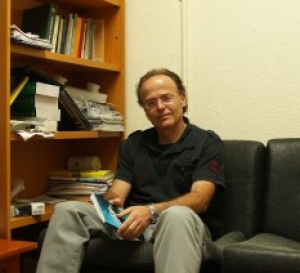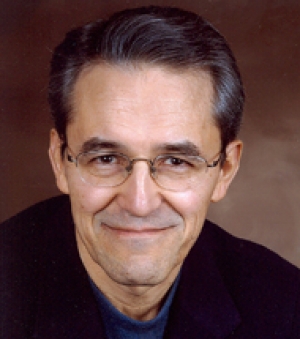Elementos filtrados por fecha: Diciembre 2025
IV WORKSHOP ON PHILOSOPHY OF LOGIC
Hitoshi Omori (Kyoto University)
One of the oldest systems of paraconsistent logic is the set of so-called C-systems of Newton da Costa, and this has been generalized into a family of systems now known as Logics of Formal Inconsistencies (LFIs) by Walter Carnielli, Marcelo Coniglio and Joao Marcos. The characteristic notion in these systems is the so-called consistency operator which, roughly speaking, indicates how gluts are behaving. One natural question then is to ask if we can let not only gluts but also gaps be around and generalize the notion of consistency into classicality. This is already considered by Andrea Loparic and da Costa in the style of C-systems. The aim of this paper is to develop a family of systems that generalizes the system of Loparic and da Costa which may be called Logics of Formal Classicality (LFCs). In developing the systems, we take the classic criticism of Graham Priest and Richard Routley saying that C-systems lack negation into account, and argue that we can restore negation by making a small change.
Lucas Rosenblatt (CONICET – Universidad de Buenos Aires)
Rejecting the Cut rule has been proposed as a strategy to avoid both the usual semantic paradoxes and the Validity Paradox. In this paper we consider if a Cut-free theory is capable of accurately representing its own notion of validity. We claim that the standard rules governing the validity predicate are too weak for this purpose and we show that although it is possible to strengthen these rules, the most obvious way of doing so brings with it a serious problem: an internalized version of Cut can be proved for a Curry-like sentence. We also evaluate a number of possible ways of escaping this difficulty.
David Ripley (University of Connecticut)
I build a theory of conversational commitment: according to the theory, we are committed to a claim iff denying the claim would be out of bounds, in a certain technical sense. This theory captures some truisms about commitment, and integrates well with a bounds-based meaning theory. This notion of commitment makes available a form of consequence, which I call `commitment consequence'. A claim Q is a commitment consequence of a claim P iff anyone committed to P is also committed to Q. I consider the closely-related notion of `external consequence', as explored in Barrio et al 2014, and argue that commitment consequence captures a phenomenon of greater interest. Nonetheless, given a classical-logic-based conception of the bounds, I show that commitment consequence is very close to the paraconsistent logic LP; this is very similar to one of Barrio et al's results.
Javier Castro Albano (Universidad de Buenos Aires)
Abstract:
Es habitual distinguir entre teorías semánticas que caracterizan una noción absoluta de verdad (teorías que definen el predicado monádico ‘es verdadero’) y teorías que caracterizan una noción relativa de verdad (teorías que definen la relación binaria ‘es verdadera en’). Davidson cuestionó el uso de las teorías de la verdad relativa en la teoría del significado, pero no tenía objeciones para el uso de teorías de la verdad relativa en lógica. Mi objetivo es cuestionar la utilidad de las teorías de la verdad relativa también en la lógica.
En el marco del Ciclo de Conferencias Seminario WIP (Work in Progress) coordinado por Eduardo Barrio
En el marco del Ciclo de Conferencias Seminario WIP (Work in Progress) coordinado por Eduardo Barrio
Lunes 20 de julio, 17 hs.
Invitado especial: Ernesto Sosa (Rutgers University)
Participan: Juan Comesaña (University of Arizona), Eleonora Cresto (UBA/ Universidad de Tres de Febrero/CONICET), Federico Penelas (UBA/Universidad Nacional de Mar del Plata/CONICET)
Organiza: Juan Comesaña
Carolina Sartorio, University of Arizona
Esta conferencia se inserta en el marco del seminario WIP, coordinado por E. Barrio y F. Pailos
Juan Comesaña, University of Arizona
Esta conferencia se inserta en el marco del WIP, coordinado por E. Barrio y F. Pailos














